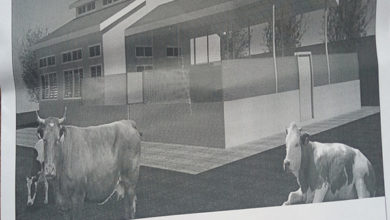Callers Urge Government to Restructure Rice Industry

Some callers into Rite FM’s Food Safety, Nutrition and Hygiene show have made calls for the restructuring of the local rice industry. According to the callers, the restructuring if properly done would inure to economic values of the nation.
One of them who simply gave his name as Thomas said restructuring the industry would encourage Ghanaians to patronize local rice produce more than is currently happening.
“The local rice industry should be restructured for the benefit of the whole nation,” he said. “The purpose of this is for Ghanaians to adapt the strategy of patronizing their locally manufactured products hence contributing to the country’s economic growth.”
At the Asutsuare irrigation project for instance, farmers are struggling with insufficient drying floors, a lack of milling machines and poor combined harvesters.
Besides these technical challenges, they are also facing high costs of production because of the access to the paying drying floors, expensive water bills and problems with the fertilizer subsidy programme.
According to the concerned callers, though Ghana’s local industries are doing everything possible to meet the needs of Ghanaians, governmental support to the sector has not been encouraging.
The callers expressed hope in massive boost in the local economy but only if central government would lend the necessary support to the sector.
“It appears that the government is not committed to investing in the exploitation of the local industries. If the central government would greatly focus on the local industries, the benefits and returns to the economy will be very encouraging,” he underscored.
One key aspect of their concerns is the push for local rice consumption, which they argued must be encouraged at all levels.
The callers who made the appeal on the Food Safety, Nutrition and Hygiene program lauded the locally manufactured rice as “very hygienic and healthy” for consumption compared to the foreign brands.
Such an effort not only increases the income of smallholder rice producers, but it also benefits economic growth and creates an opportunity to export rice to other African countries.
They further asked Ghanaians to look beyond the packaging of the foreign products and focus on its other qualities since consumers of foreign brands risk suffering various implications.
They were also convinced that expanding Ghana’s rice industry will equally help reduce the rate of unemployment which will go a long way in improving upon the fortunes of the local industry, adding that government ought to include the revamping of the local rice industry as part of its one district, one factory policy.
“Government should include the restructuring of the rice industry into its one district, one factory policy as a matter of urgency. All locally manufactured industries must be supported massively for the increase in the country’s revenue,” they urged.
But some consumers of the local rice have argued that the low quality of the rice harvested in some of our irrigation projects, like Asutuare, deters local rice consumption.
There have been complains regarding the presence of stones and other foreign products in the rice. Of course, nobody wants to end up eating stones, wood any other material besides rice, but the real question is elsewhere. Why are there stones and other material? And why would farmers allow that in their rice?
Comparing rice that has been milled manually with rice milled by the machine, the difference is very clear. Whereas rice harvested, threshed and milled manually contains stones and other foreign materials, the mechanically-processed one is pure.
The latter will be more demanded and, hence, more sold.
So despite very tedious and costly production challenges, manual rice workers are facing an unfair competition that impacts their products, income and livelihood.
Source: Rita Nkansah /www.ritefmonline.org/rnkansah12@gmail




